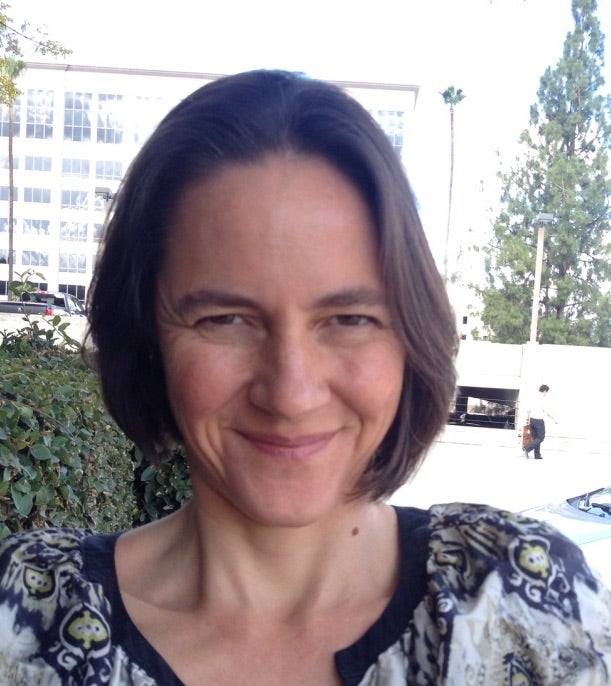
Senior Policy Fellow
Lorna Seitz
Lorna Seitz is an expert in developing transformative laws, policies and programs. Seitz has 20+ years of experience in policy development, legislative analysis and institutional reform. She specializes in facilitating collaborative problem-solving processes, promoting civic engagement with policy-making and oversight processes, and establishing systems to address wicked problems. Her work with legislators, government officials, civil society representatives and university faculty members has led to the development of hundreds of bills and accompanying research reports. She has also developed curricula for universities and civil service academies on three continents; co-authored a series of books on evidence-based policy design, legislative assessment and institutional reform; taught university courses on legislation, democratic processes and policy; and facilitated law reform projects in 40+ countries. Her research interests include: digital, deliberative and dialogic democracy; SDG and human rights realization; developing situationally-sensitive institutional design algorithms; legislative and regulatory impacts assessment; reforming laws to reduce inequities; and situating legisprudence within the social sciences.
Seitz has a JD from Boston University, a Masters in Environmental Law from Vermont Law School, and a BA from Reed College. She is the co-founder and President of Legis, a non-profit founded to realize the potential of 21st century technology to overcome barriers to inclusive, responsive, evidence-based policy and law development. Seitz spearheads Legis’ efforts to build a decision-support system (the LegisX Platform) to facilitate the distributive development of situationally differentiated, evidence-based, bills, policies, and implementation plans. Prior to founding Legis, Seitz served as Executive Director of the International Consortium for Law and Development; Director of Boston University’s Legislative Distance Drafting Program; a Lecturer at the Boston University Law School, Boston College, and the University of California (Riverside); ADR Task Force Member for the US Environmental Protection Agency; and as a Guest Investigator at Woods Hole Oceanographic Institute. She has also worked for USAID, the US Department of State and the United Nations as a Senior Expert on Gender, Alternative Dispute Resolution, Impacts Assessment and Legislative Strengthening.
What are your proudest accomplishments?
I'm proud that I've kept innovating in response to changing conditions and emerging possibilities. I'm also proud that many of my former students have gone on to become leaders in the development, legislative drafting, and institutional reform fields (although I can't really call that my accomplishment so much as a reflection of the fact that I have been privileged to work with amazingly talented, passionate and innovative people).
If there is one project that I'm particularly proud of, it would be successfully using Alternative Dispute Resolution (ADR) to address Gender Based Violence (GBV) in a community wherein GBV was widely accepted as a social imperative. Anyone familiar with the preconditions for successful ADR, or the difficulties in altering the behavior of abusers, would attest to the challenging nature of this project. I worked on the project through the process design, collaborative solution formation, capacity building and early implementation/ monitoring phases, and saw radical changes in participants' ideologies, actions and treatment of GBV cases.
Which research would you be interested in collaborating with students on?
USAID once referred to our approach to participatory problem-solving as the most effective lawmaking approach in fragile states and post-conflict societies. Why? This approach not only helps users identify effectively implementable policy interventions, but it does so in a manner that has proven effective at issue-depolarization and consensus building. Given America's current degree of political polarization and disagreement when it comes to basic policy objectives and facts, we may well need to adopt the strategies that have proven useful in fragile states for de-radicalization, peacebuilding & establishing a common vision of the type of future they want to create.
I'd love to connect with students who are interested in:
• Re-envisioning democracy so it serves us all, not just the elite, the majority or the loud;
• Reconstituting civil society through inclusive problem-identification and resolution processes;
• Restraining abuses of executive power; and
• Differentiating between aspirational and technical decisions made during policy-making processes, and mapping who is making those decisions and on what basis.
What advice do you have for public policy students?
1. Look for opportunities to learn while engaging in real-world knowledge-generation and problem-solving processes.
2. Work cooperatively, iteratively & publicly.
3. View the quest for one-size-fits-all solutions with extreme skepticism.
4. Design research protocols and data- analysis processes to combat projection, and other cognitive biases.
5. Recognize that ownership drives implementation. Design and run inclusive processes through which stakeholders can identify and prioritize problems, contribute to the understanding of the localized nature and causes of problems, and evaluate and choose between alternative solutions.
What do you think policy students will be faced with as they graduate in this time of COVID-19?
We are living through what could prove a deeply transformative period in US history. We either act to address existential threats arising from climate change, to expand opportunities, and to reform institutions to alleviate injustices, or we will continue to face rising inequality and diminishing resources and opportunities. There is a momentum to create more inclusive and just institutions and to address the root causes of problems that is very exciting. The future is up to you. Regardless what happens in the upcoming US elections, there should be an opportunity to make a difference at the local level.
What do you enjoy doing in your spare time?
Pre-COVID: I traveled a lot for work so spent spare time exploring unfamiliar places on foot and by going to nature preserves and historic sites. Hiked, canoed on the Colorado River, boogie boarded, skied, etc.
COVID Era: MMA / kickboxing at home. Attempting hydroponics. Walking around my neighborhood with my son. Expanding my skills in data science and machine learning. Writing. Zooming.